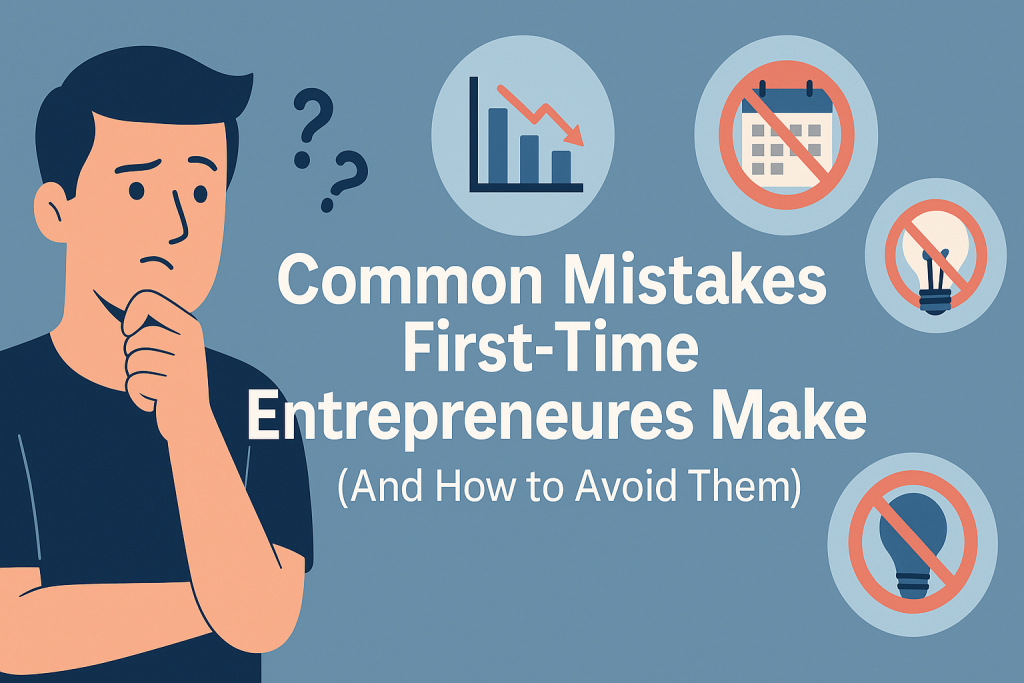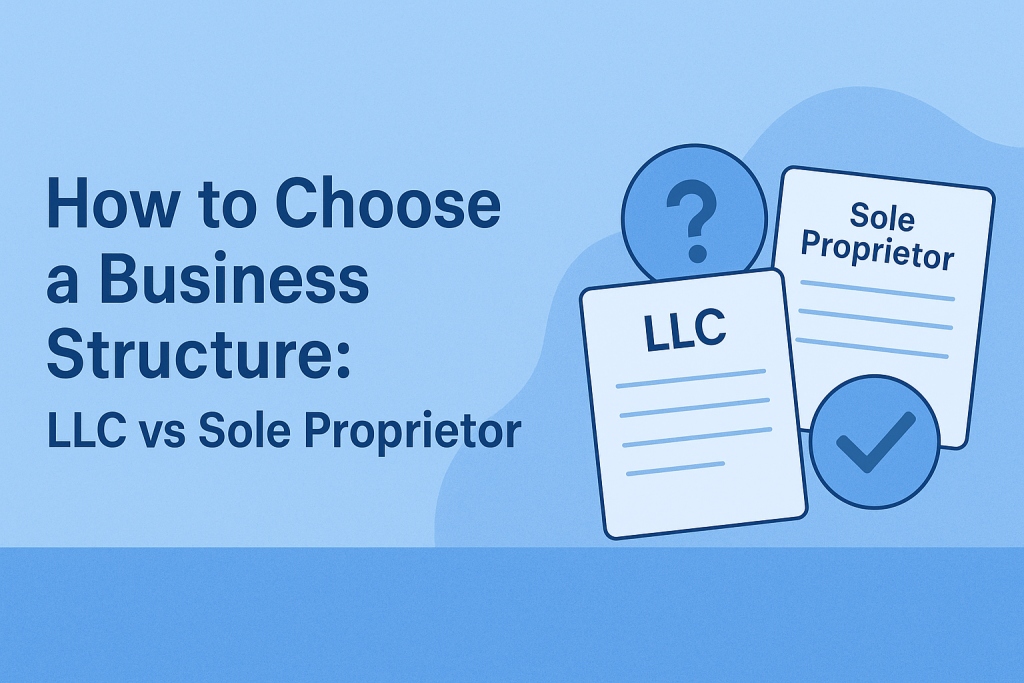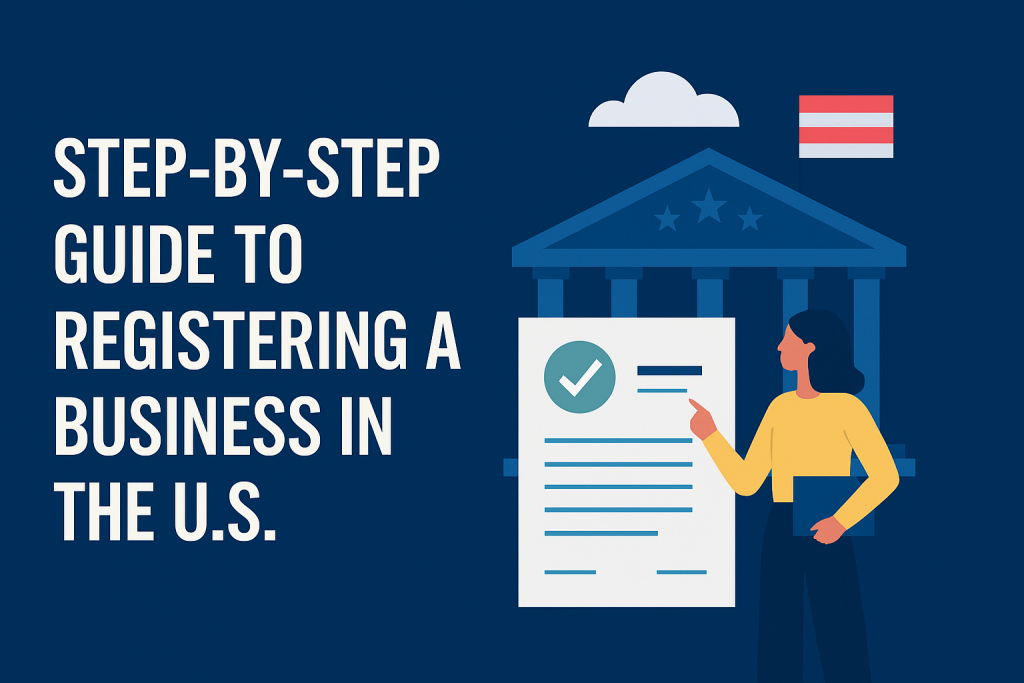Starting a business is exciting—but it’s also a minefield of potential missteps. As a first-time entrepreneur, it’s easy to get caught up in the momentum and overlook crucial decisions that can make or break your startup.
In this guide, we’ll explore the most common mistakes first-time entrepreneurs make, and how you can avoid them by planning smarter and staying grounded.
1. Skipping Market Research
Why It’s a Mistake
Many entrepreneurs fall in love with their idea without validating whether there’s a real need for it. Just because you think your product is great doesn’t mean the market agrees.
What to Do Instead
- Talk to potential customers before building
- Research competitors and pricing models
- Use surveys, beta tests, and MVPs (Minimum Viable Products)
Validate demand before you invest too much time or money.
2. Focusing Too Much on the Product, Not the Problem
Why It’s a Mistake
First-time founders often get caught up perfecting features instead of solving the core problem their audience faces.
What to Do Instead
- Ask: “What real pain point does this address?”
- Build a lean version, then improve based on user feedback
- Remember: Customers don’t care about features—they care about outcomes
3. Ignoring Finances and Cash Flow
Why It’s a Mistake
You might be excited to start making sales, but failing to track your income, expenses, and runway can quickly lead to burnout—or bankruptcy.
What to Do Instead
- Set a clear startup budget
- Track every expense
- Use simple tools like Wave, QuickBooks, or spreadsheets
- Always know your monthly “burn rate”
Cash flow is king—especially in the first year.
4. Trying to Do Everything Alone
Why It’s a Mistake
Wearing all the hats—CEO, marketer, accountant—can drain your time and energy, leading to overwhelm and burnout.
What to Do Instead
- Outsource or delegate what you’re not great at
- Join a mastermind, co-working group, or startup incubator
- Ask for help from mentors, freelancers, or friends
Great businesses are built by networks, not lone wolves.
5. Underestimating the Power of Marketing
Why It’s a Mistake
You may assume “if I build it, they will come”—but without marketing, no one will know your business exists.
What to Do Instead
- Choose 1–2 marketing channels and go deep
- Start with organic methods (content, social, referrals)
- Track what works and double down on it
- Build an email list early
You don’t need to be everywhere—just where your audience is.
6. Lacking a Clear Business Plan
Why It’s a Mistake
Without a plan, it’s hard to prioritize, measure progress, or raise funding.
What to Do Instead
- Create a simple 1-page business plan
- Define your vision, goals, market, and monetization
- Review and adjust quarterly
Even the simplest plan is better than no plan.
7. Fearing Failure Instead of Embracing It
Why It’s a Mistake
Fear of failure leads to inaction. Many new entrepreneurs delay launching, overthink decisions, or give up too early.
What to Do Instead
- Reframe failure as feedback
- Launch fast, learn faster
- Celebrate small wins and lessons learned
Entrepreneurship is a mindset game—build resilience early.
Final Thoughts
Being a first-time entrepreneur means stepping into the unknown. Mistakes are part of the process—but the more you’re aware of them, the better prepared you’ll be.
Focus on progress over perfection. Talk to your customers, watch your finances, surround yourself with support, and don’t be afraid to pivot. With self-awareness and smart strategy, you can turn early stumbles into long-term success.
Want to Avoid These Mistakes?
- 📥 Download our free checklist: “7 Startup Traps to Dodge in Year One”
- 💬 Share the biggest lesson you’ve learned in your startup journey below
- 🧠 Follow us for more guides made for first-time founders


